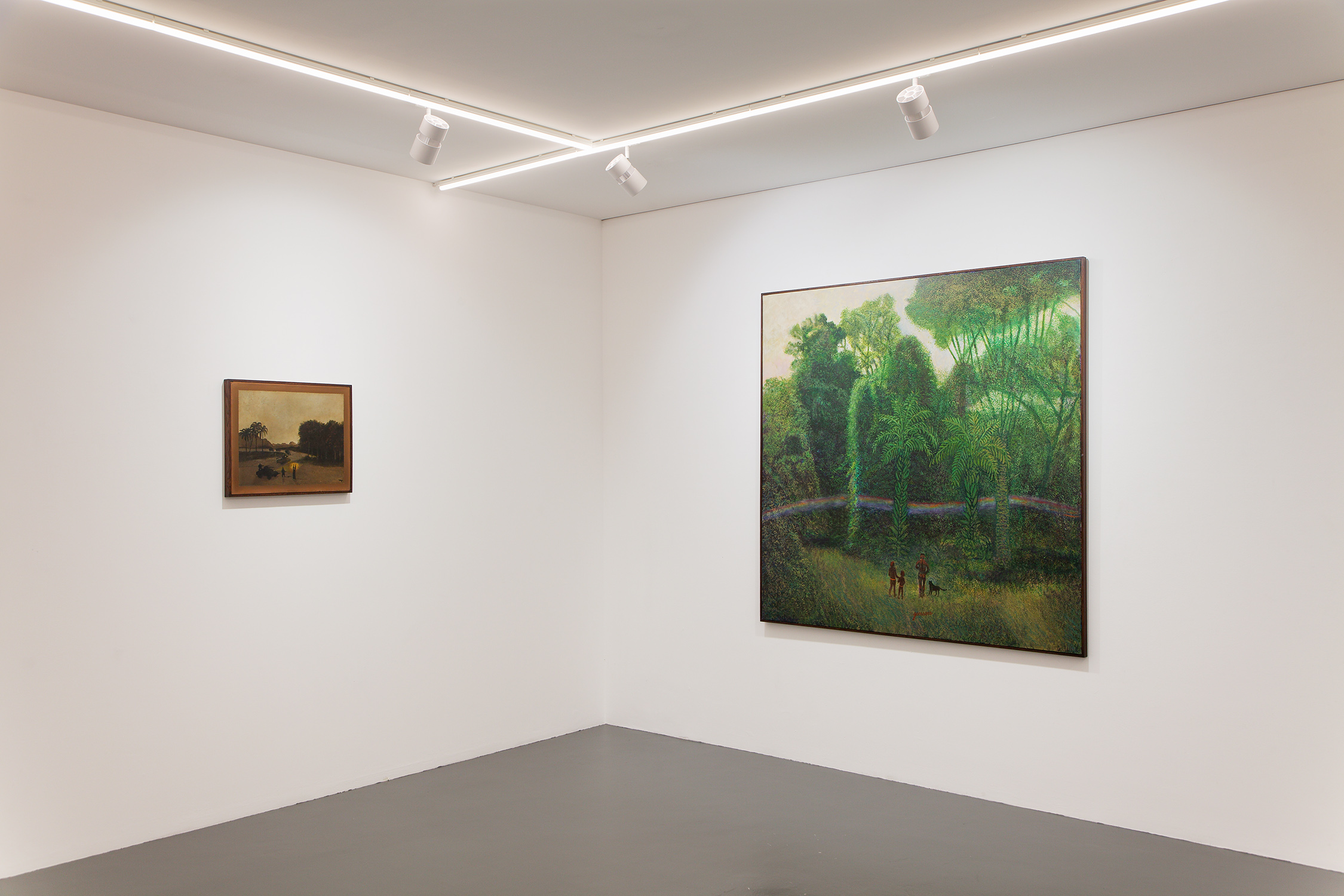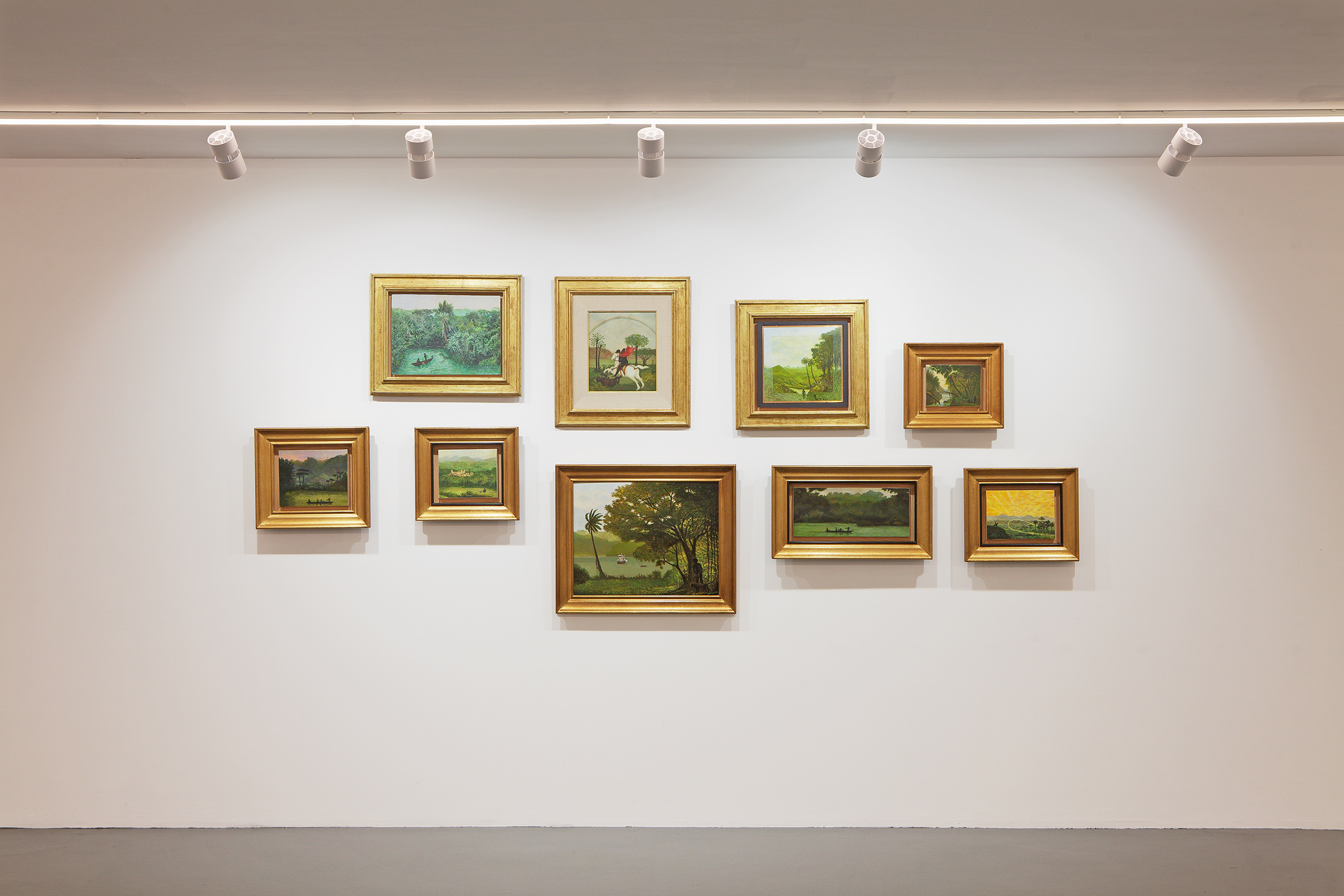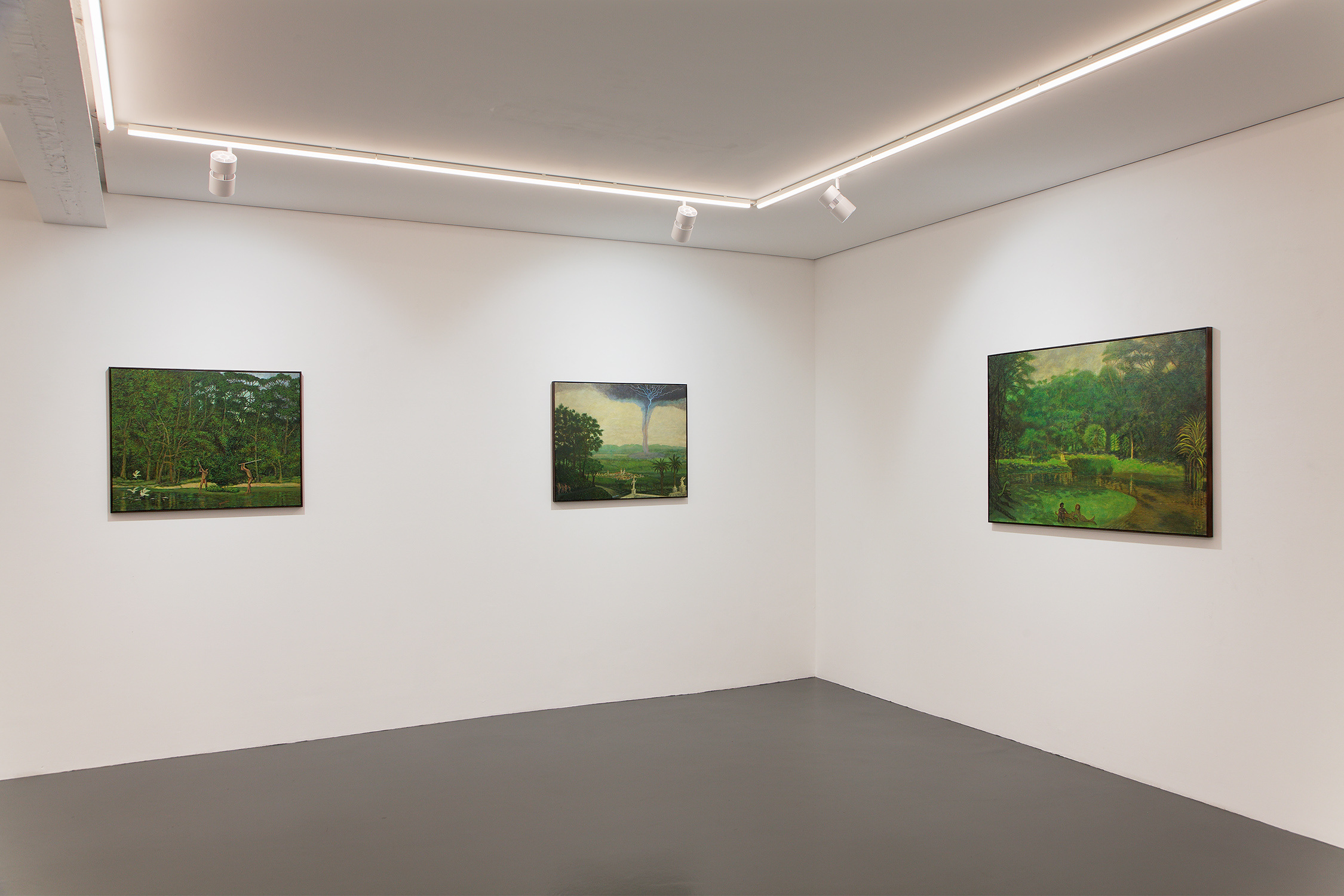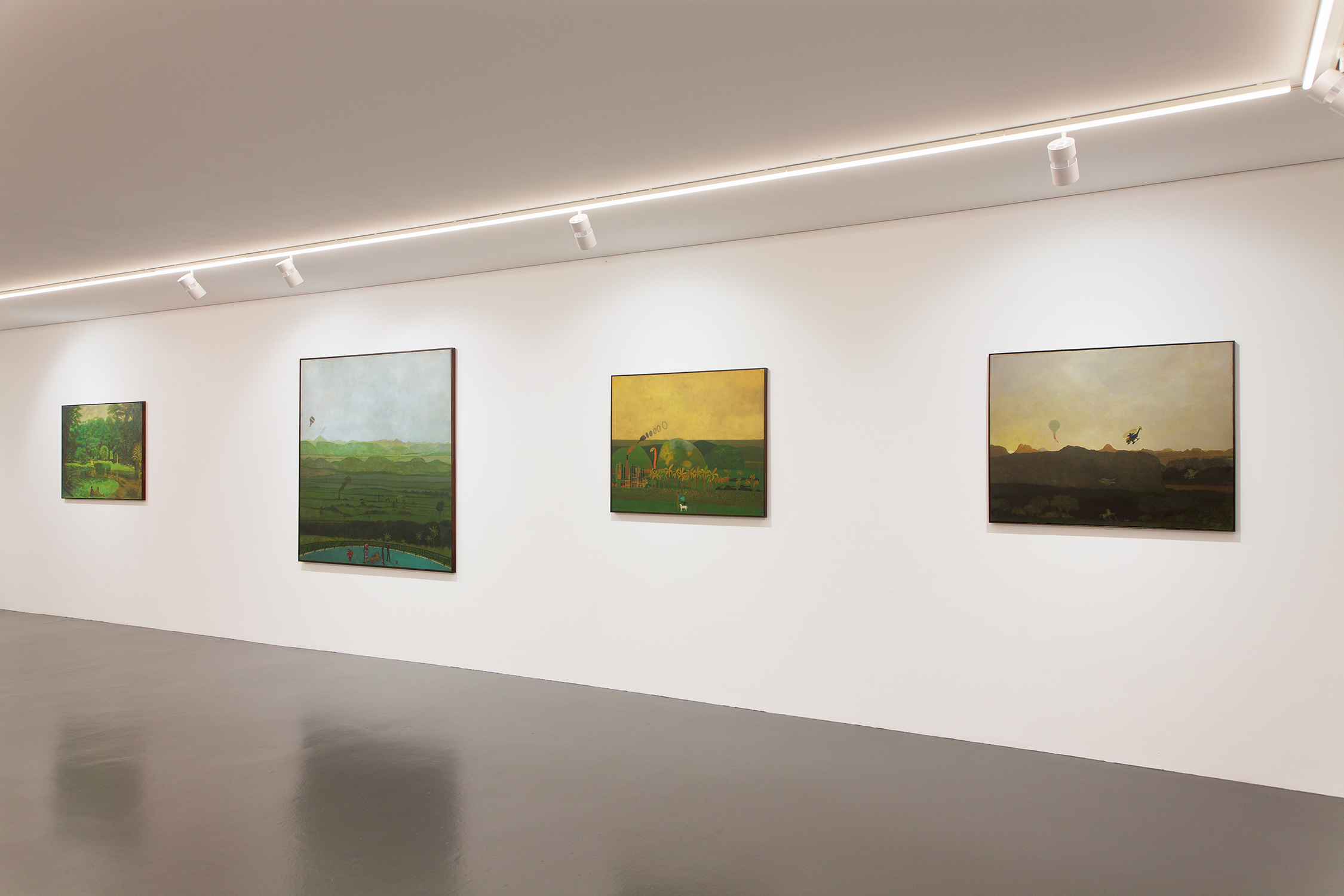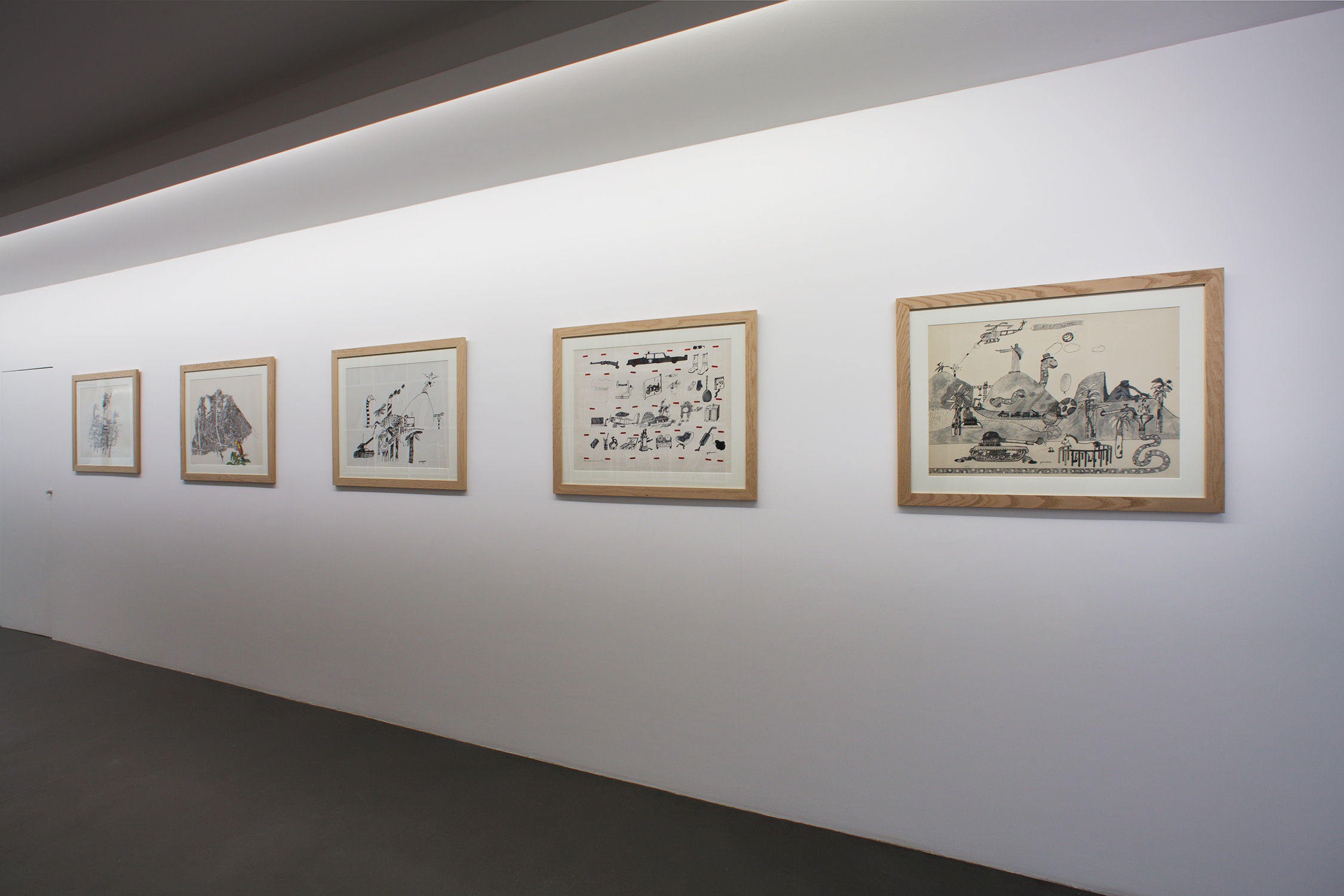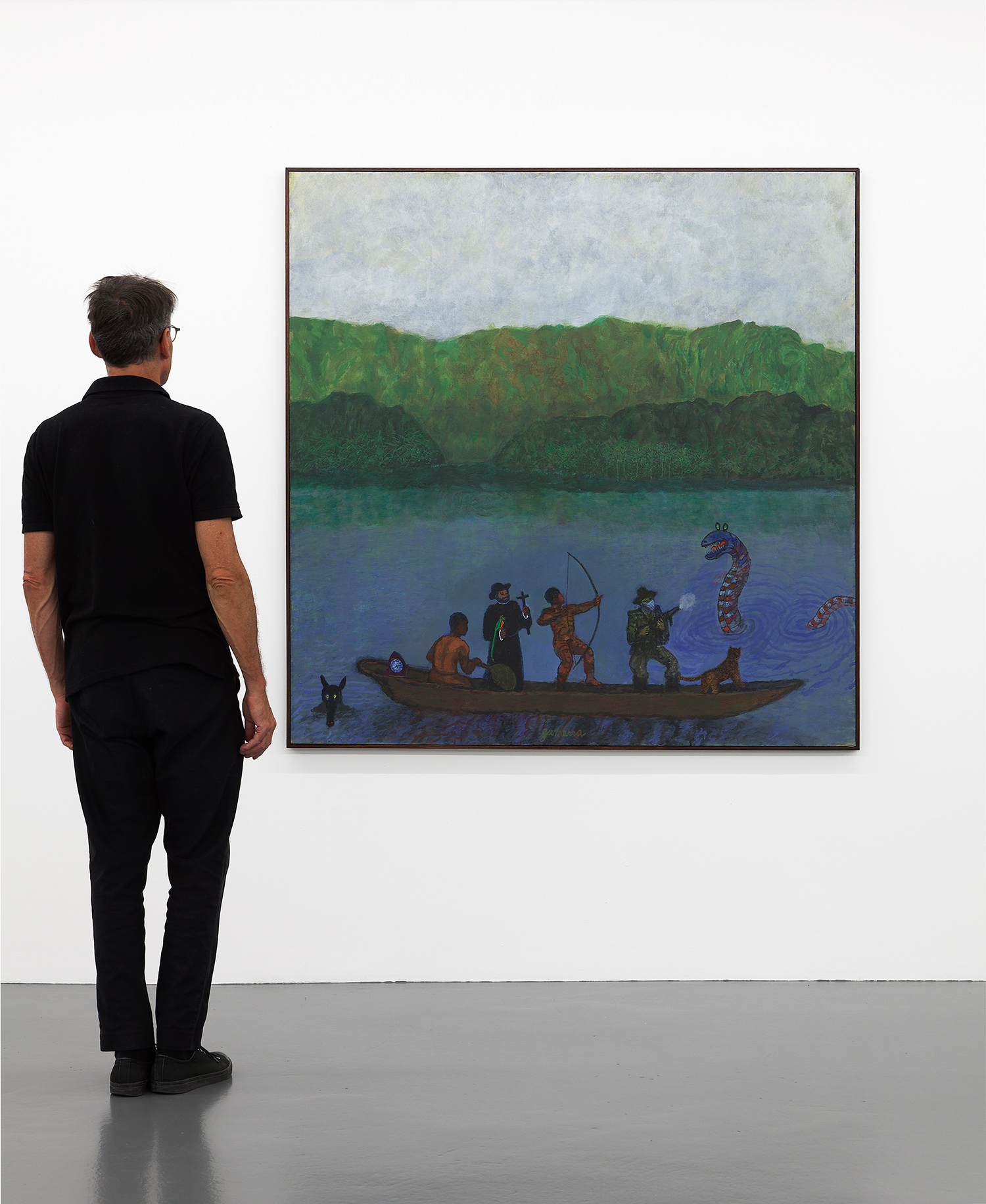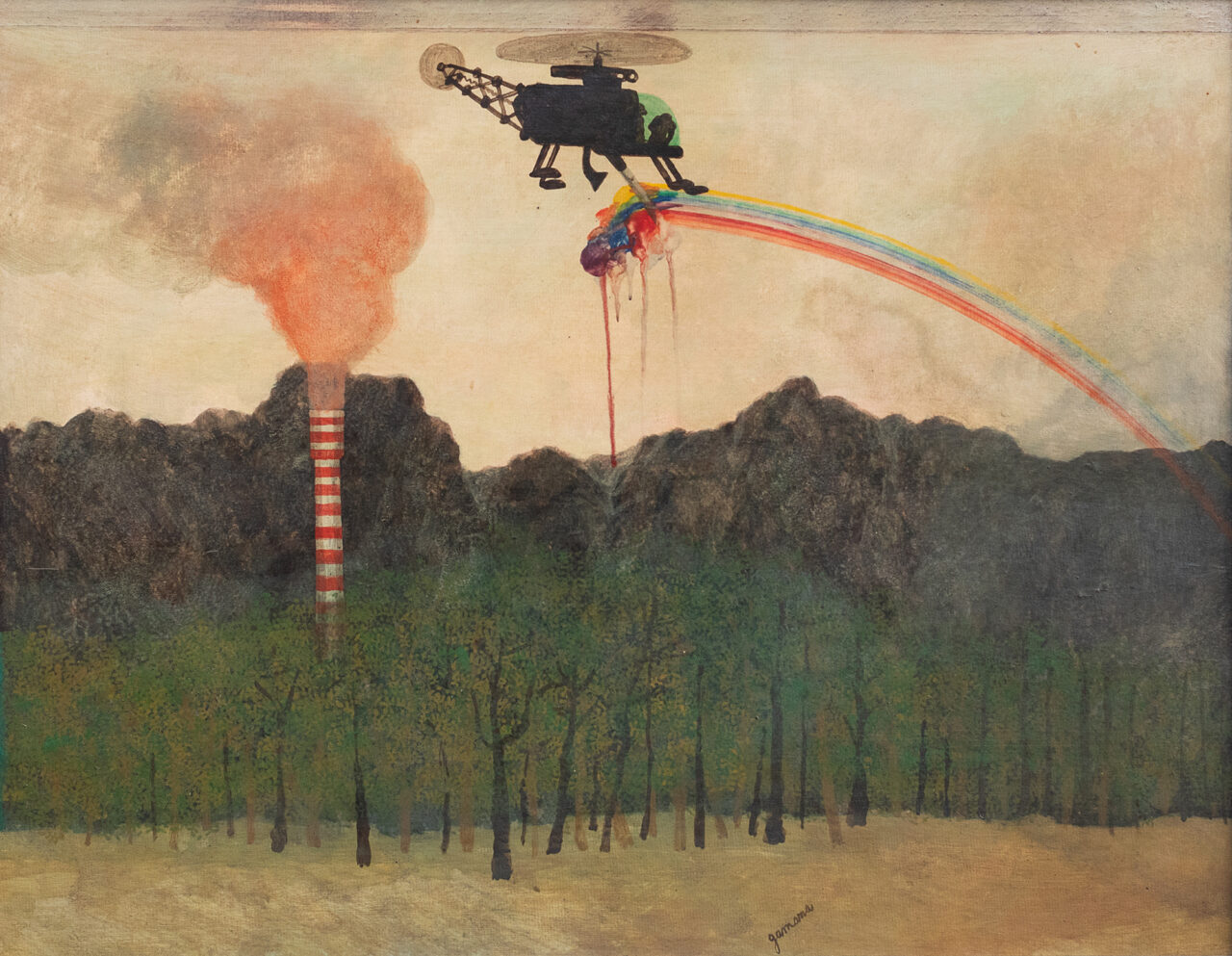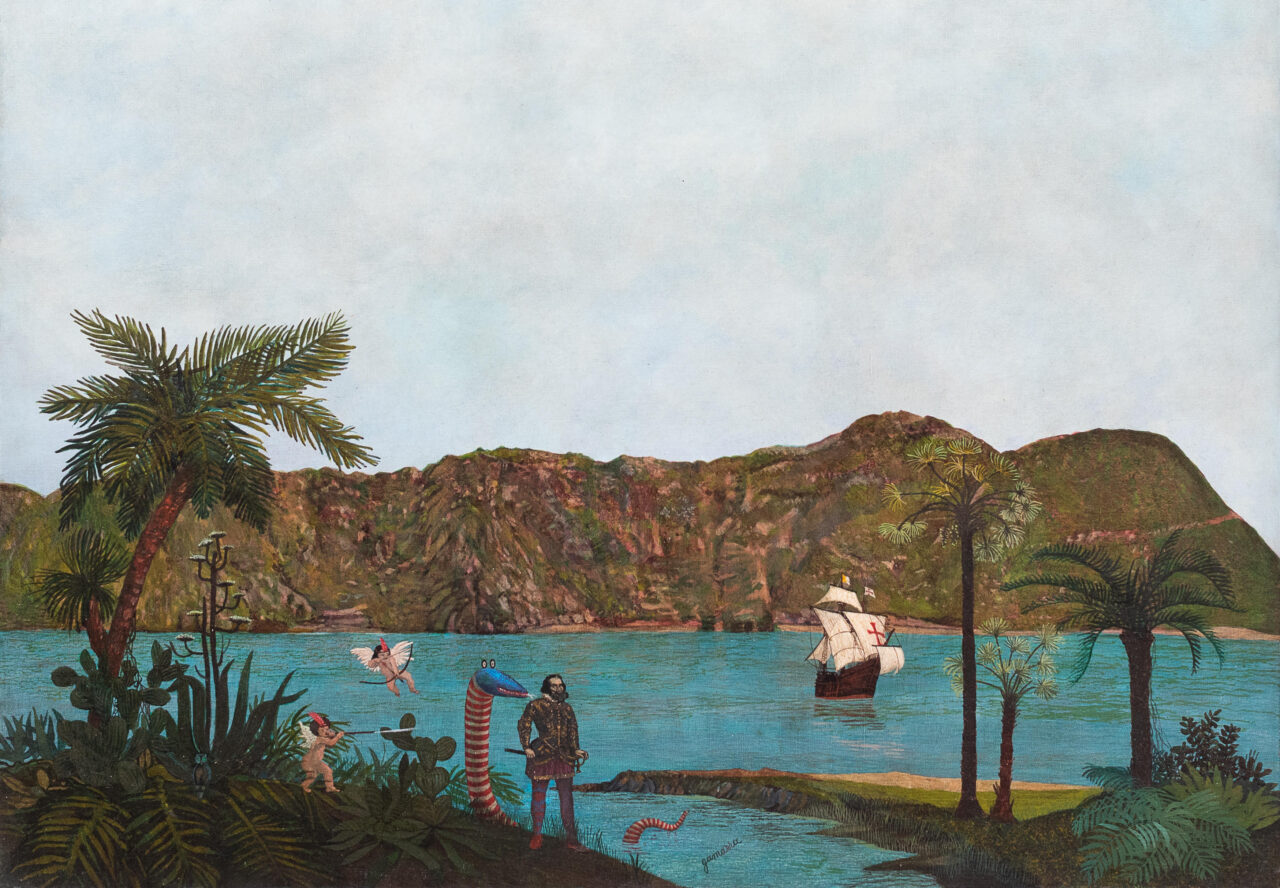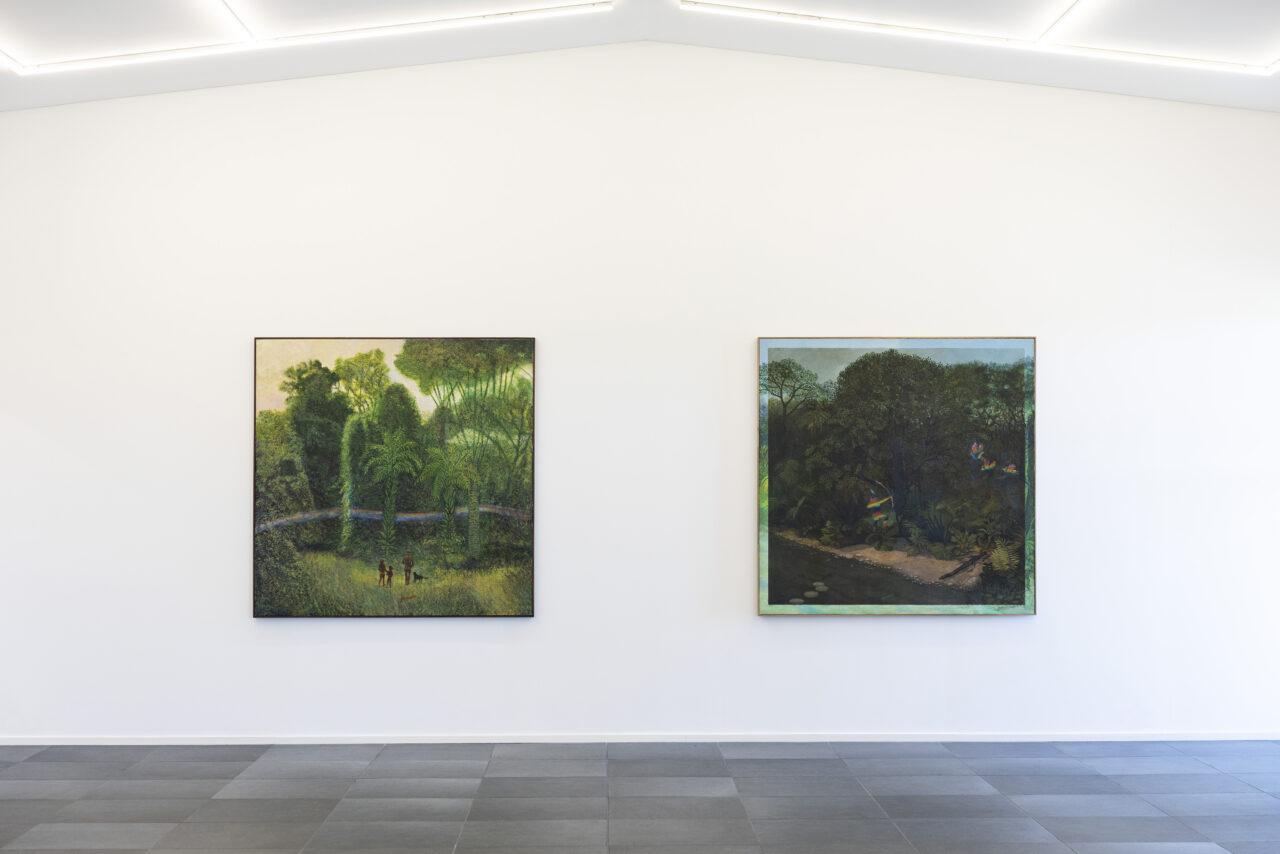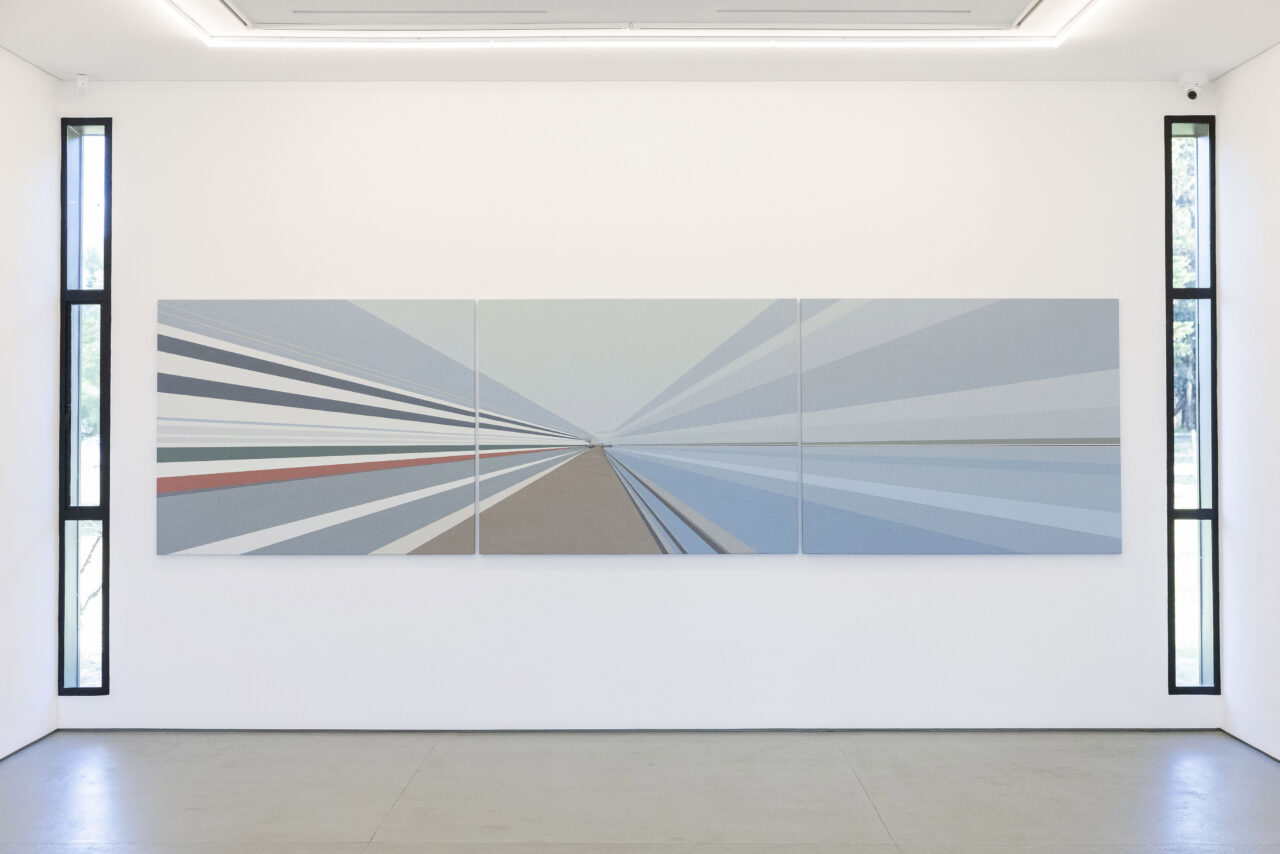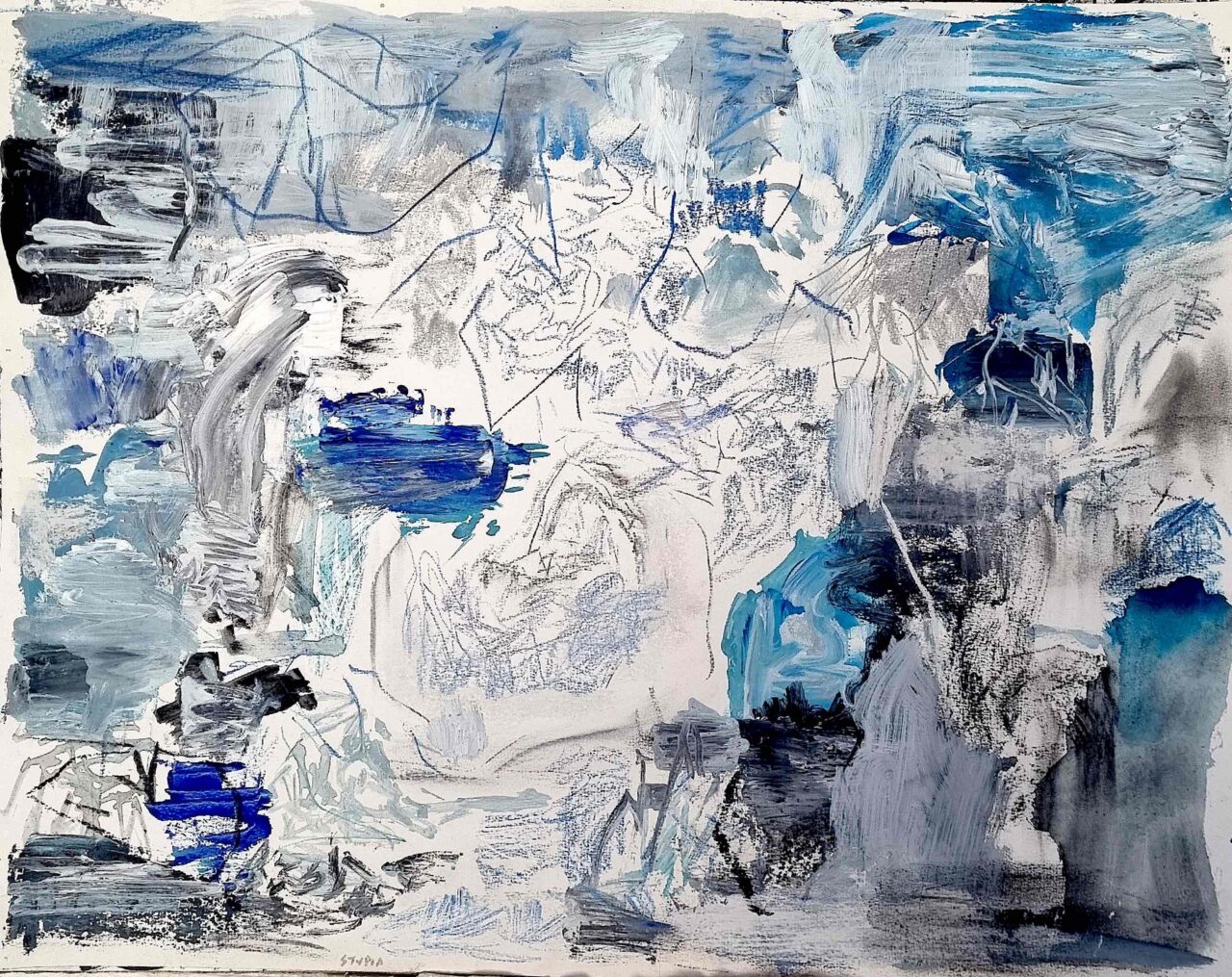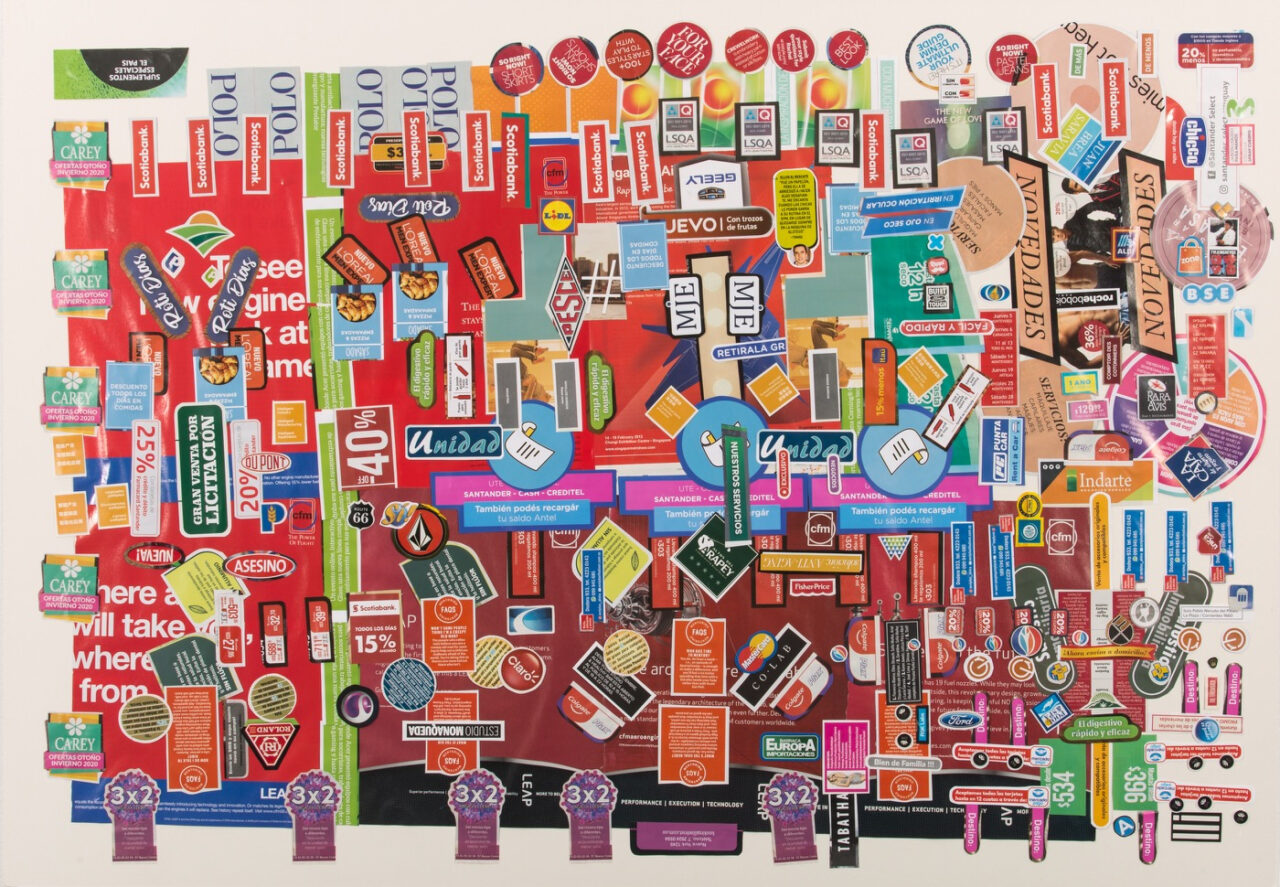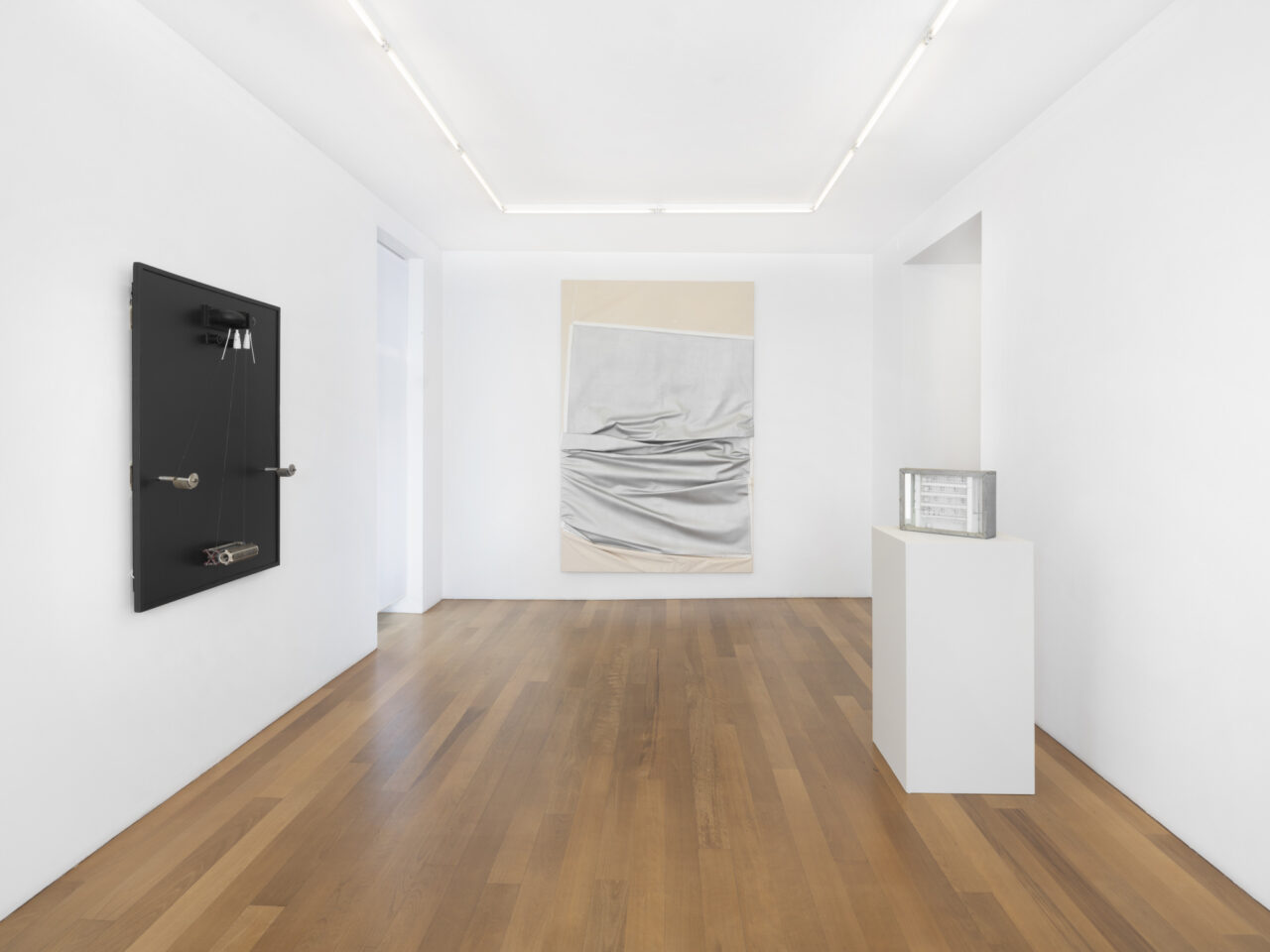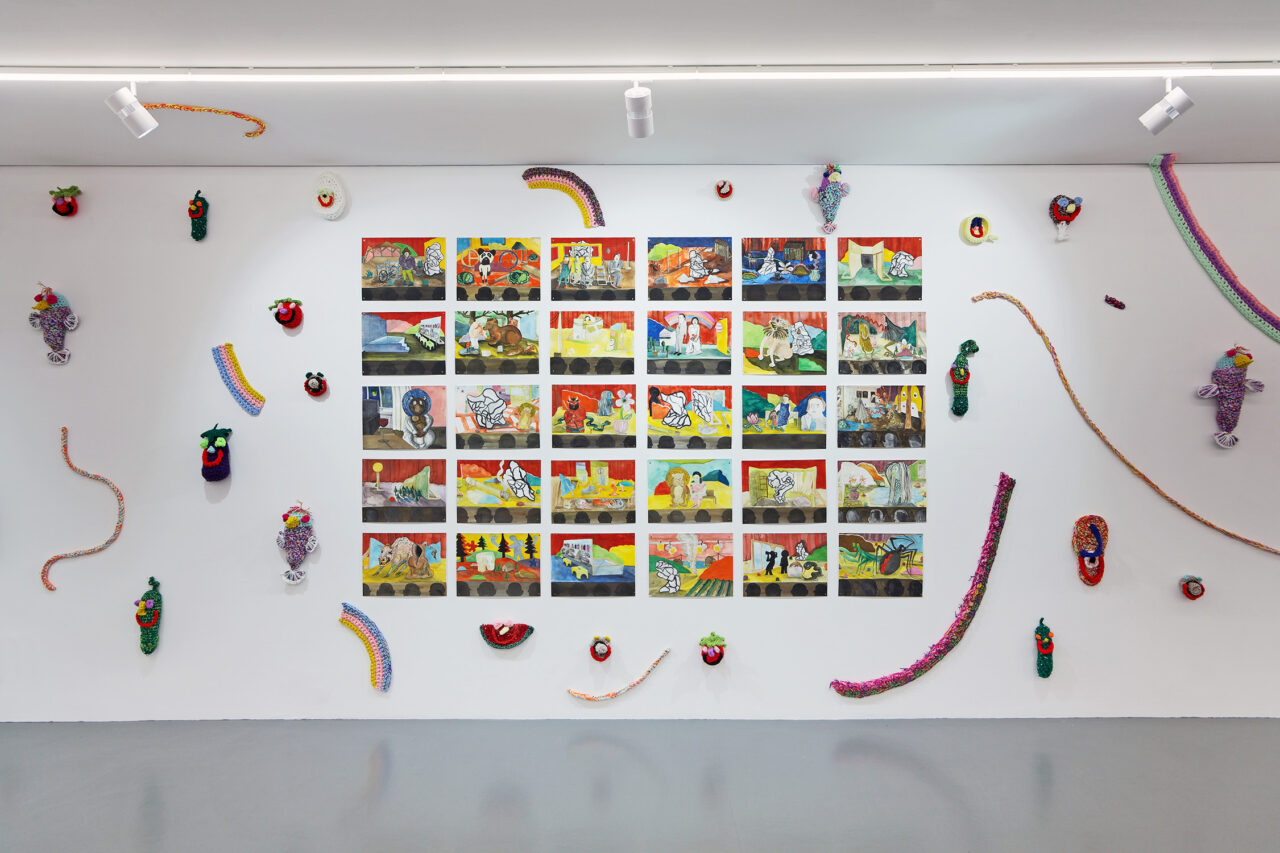José Gamarra – Le théâtre de la jungle
José Gamarra
Le théâtre de la jungle
07.09.24 → 17.10.24

Extended until October 17, 2024
Anthological exhibition, works from 1969 to 2024
Curated by Manuel Neves
We must return to the forest which is the source of our words, the reliquary of the signs and forms that haunt us. Not knowing if it threatens us or is favorable to us.
— Edouard Glissant
In José Gamarra’s painting El progreso de una ayuda (The Progress of an Aid) dating from 1969, we see a US Air Force bomber plane dropping a multitude of objects related to the war industry onto an exotic tropical landscape. The title of the painting, charged with cynicism and irony, defines its narrative tone: American foreign policy cannot dissociate progress from war. Likewise, in the work Amigos from 2021, a fairly recent work included in the exhibition, we observe, within a sumptuous representation of the jungle, three main figures: an animal, a human and a mythological being, and two creatures observing them. In both works the jungle is the scenery and the space where a story unfolds. In the first painting, we observe the witness and the victim of an imperialist policy, in the second, the only possible space where these beings, real and imaginary, can coexist: “The law of the jungle” and “The Jungle Book”.
The anthological exhibition Le théâtre de la jungle (The Jungle Theater) presented at Xippas Paris, features works from the last 50 years of this unique artist with an outstanding selection of paintings and drawings.
José Gamarra was born in Uruguay and after living a few years in Rio de Janeiro and participating in the Venice Biennale (1964), he settled in the Paris region in the mid-60s.
The first series of works created in France embraced some of the aesthetic guidelines of the Narrative Figuration group (Adami, Arroyo, Arnal, Castro, Cueco, Días, Fromanger, Rancillac, Recalcati, Telemaque). Gamarra participated for some time in the comings and goings of this heterogeneous figurative group, associated with the imagery of the media, comics and entertainment industry, which in some way embodied the highly politicized atmosphere that existed in Paris in the 60s. During the 1970s, the representation of nature and in particular the tropical jungle progressively gained more space in the artist’s pictorial compositions. Entering the following decade, the representation of the jungle becomes more sophisticated on a formal level and occupies almost all the space of Gamarra’s paintings.
José Gamarra’s artistic project being focused on painting, but also including the practice of drawing and graphic production developed since the late 1960s, introduces the representation of the jungle or jungle as a possible scenario for human development. Jungle, forest, selva is for the artist a scene of all conflicts and all agreements, a fundamental space of human action, the primordial scenery of myth and fable, the impenetrable mystery of the unknown. In this infinite and mysterious setting, the artist presents unusual stories, where diverse characters, members of different cultures and historical periods, coexist and interact: The Pope and Superman, the Spanish conquerors of America and mythological animals, Yanomami and American marines.
The jungle scenery is the witness and the victim of all these conflicts and at the same time it is a space of ontological resistance and resilience, perhaps the last possible one.
Like all great creators, Gamarra’s artistic project is not only contemporary because of its relevance and creative originality, but also because it continues to project images that reveal fundamental issues and questions.
Nature, culture, society and politics, the geography where life originates, the living space of entropy and the home of negentropy, this fragile and at the same time resistant space is perhaps the last limit that nature offers to the human being and his culture. The last border.
— Manuel Neves
Exhibition views
-
![José Gamarra Xippas Paris 2024 08]()
José Gamarra
Exhibition view, Le théâtre de la jungle, Xippas Paris, 2024 -
![José Gamarra Xippas Paris 2024 01]()
José Gamarra
Exhibition view, Le théâtre de la jungle, Xippas Paris, 2024 -
![José Gamarra Xippas Paris 2024 05]()
José Gamarra
Exhibition view, Le théâtre de la jungle, Xippas Paris, 2024 -
![José Gamarra Xippas Paris 2024 09]()
José Gamarra
Exhibition view, Le théâtre de la jungle, Xippas Paris, 2024 -
![José Gamarra Xippas Paris 2024 10]()
José Gamarra
Exhibition view, Le théâtre de la jungle, Xippas Paris, 2024 -
![José Gamarra Xippas Paris 2024 18]()
José Gamarra
Exhibition view, Le théâtre de la jungle, Xippas Paris, 2024 -
![JGa024_7]()
José Gamarra
Le cerf-volant, 1979
Oil on canvas
153 x 173,5 cm -
![JGa024_29']()
José Gamarra
L’heure fatale, 2024
Acrylic on canvas
152 x 152 cm
